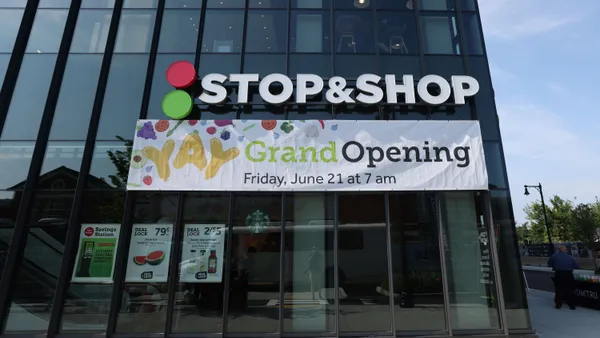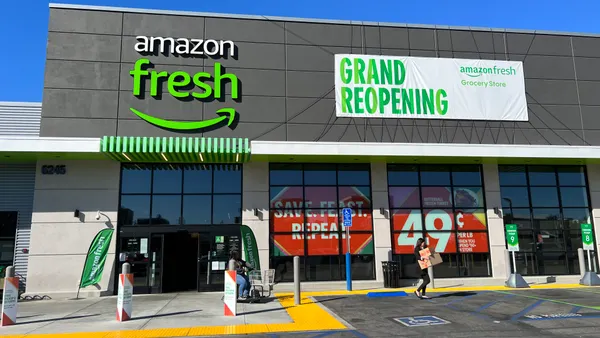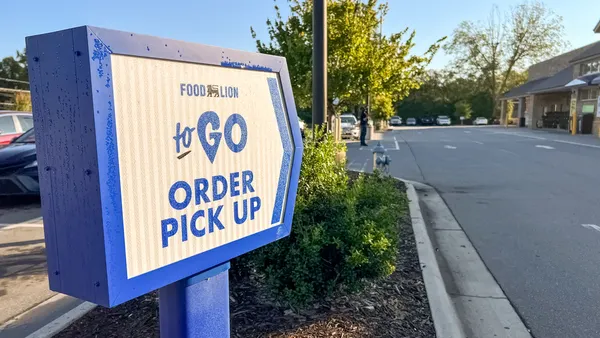Dive Brief:
- Consumers who mentioned Amazon in their Yelp reviews of Whole Foods gave out lower ratings than those who didn't, according to an analysis on Medium. Whole Foods reviews that did not mention Amazon have an average rating of 3.2 stars, but reviews that do mention the tech giant are about half a star lower.
- About 5% of all Whole Foods reviews included Amazon during the two months between the announcement and the acquisition. Amazon mentions surged from 10% to 15% after the acquisition, and these posts have increased to almost 20% in the last two months.
- "I get the impression the quality has gone down. The employees don’t seem to love their jobs as much anymore, so I wonder what happened behind the scenes with Amazon," wrote Alexandra J., who updated a five-star review published before the announcement to a three-star one after the acquisition.
Dive Insight:
Although Whole Foods stores look nearly the same and still stock identical products, a group of vocal consumers online believe that Amazon is hurting the grocery store. Negative reviews of the retailer that mention Amazon broadly criticize the grocer's customer service, advertising and overall quality. This Yelp analysis shows how shopper sentiment can shift after a major acquisition, even if there isn't much change to the store itself.
When Amazon announced it would acquire Whole Foods for $13.7 billion last summer, many predicted the grocer would dominate the industry. But a year after this takeover, the natural and organic retailer's sales and traffic are only up slightly.
These Yelp reviewers who mentioned Amazon and gave sour write ups of the retailer after the acquisition seem to be the minority of shoppers and their voices aren't significantly impacting sales for the stores as of now. Each Whole Foods location has a Yelp website where shoppers have left hundreds of reviews, but a subset of consumers left reviews at locations before and after the announcement of the Amazon deal. The analysis found that Yelp users who updated their reviews after word of new ownership broke left negative ones — more than half a star below their initial ratings.
Shoppers who rate their grocery stores on Yelp — and return to old reviews to update them with new opinions — seem to be a very niche consumer set. Still, these findings could reflect a broader perception of the grocer since Amazon took it under it's wing.
Customers in different cities have also complained of empty shelves at their Whole Foods locations as the company grappled with a new inventory system. But most stores haven't made changes that would drastically shift its audience. The most noticeable change is the addition of Amazon Prime, which serves as a new membership program at Whole Foods. Prime members can use their account at checkout to score savings for online orders, in-store discounts and a cash-back credit card.
Since Amazon's acquisition of Whole Foods, competing grocers have scrambled to develop comparable online shopping platforms and have discussed mergers to keep up. Retailers are also looking for the grocer's blind spots, and are trying to lure shoppers with strong local and natural product assortment — a value-add that's been watered down at the grocer since Amazon took the reins. In order to keep ahead of these opponents, it may be wise for Whole Foods to develop a marketing strategy that will assuage these consumer concerns.













